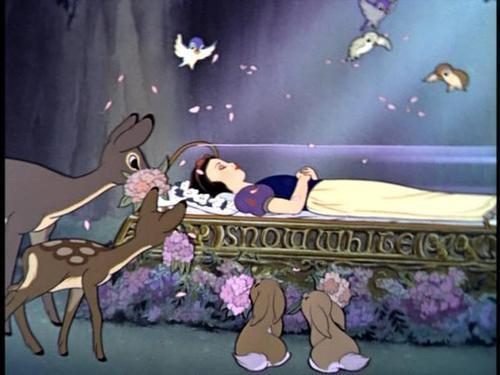A couple of days ago, media outlets in the UK were filled with opinion pieces about the case of a girl who had died from cancer.
The reason a media fuss was made about it was because the young woman had won a legal claim to be allowed to be cryonically frozen upon her tragic, premature death.
It is considered a landmark case; and it is genuinely fascinating for a host of reasons.
Cryonics is basically a process of preserving the body in extremely cold temperatures, with the aim of possibly being able to revive it at some unknown date in the future. A glycerol-based chemical (a kind of anti-freeze) is fed into the body, which, after reaching -130 C, is placed in a container and immersed in a vat of liquid nitrogen.
The idea of cryonic preservation has been in public consciousness for decades, since it was developed in the 1960s, so that it is a fairly widely understood concept, even if there are differing opinions as to whether, in its present form, it will work. There are also the standard moral arguments about whether it is even a good idea or not. The judge in this particular case, Mr. Justice Peter Jackson, ruled in favor of the terminally ill girl’s wish to be cryonically preserved after disputes about whether this would be permissible. The 14 year-old became the first British child to undergo the procedure and was taken to the US for preservation.
She had written in a heartfelt letter, after a long struggle with terminal cancer; “I want to live and live longer and I think that in the future they may find a cure for my cancer and wake me up. I want to have this chance.”
In cryonics, it is asserted that the human subject – including what we might loosely term ‘personality’ – can survive, even within an inactive brain: assuming, in theory (and theory only) that the original encoding of memory and ‘personality’ can be reconstituted. ‘Cryonicists’ posit that the brain’s information content can be reactivated, so long as the brain structure remains intact. Fascinatingly, some also argue that the cryonically frozen human subject shouldn’t be considered ‘dead’ (even if, by standard definitions, they have clinically’died’), so long as the critical information (in the brain) that is crucial to ‘personality’ can be defined as being intact.
In other words, by this reckoning, if someone is in a state of cryonic freeze, so long as the brain structure is intact, the person could still be regarded as ‘alive’; though the more correct term would be potentially alive, sort of a human version of Schrodinger’s Cat. The cryonicist view would be that the girl is not considered deceased, but in a state of sleep or suspended animation.
There’s perhaps something that feels counter-intuitive about that on first glance; it feels instinctively difficult to digest that a body (and brain) reactivated a hundred years or so after initial ‘death’ could simply reactivate not just the physical being and biological and chemical functionality, but also the personality of the person, the psychological make-up, etc, and generally the sorts of hard-to-pin-down elements that we tend to most associate with ‘the person’.
Some scientists refute the underlying methods, suggesting, for example, that the vitrification process (where over 60% of the water inside cells is replaced with protective chemicals) would potentially cause damage to the brain, such as membranes being ruptured or sensitive neuronal connections being compromised.
But the truth is that this is still all very speculative. What this 14 year-old girl was choosing to do was to take a chance, or a leap of faith if you like, with the possibility that this could happen and she might have a second shot at life. She simply didn’t want to die so young, and in her own words, didn’t want to be “buried in the ground”.
“I’m dying, but I’m going to come back again in 200 years,” the girl, who remains unnamed, is reported to have said.
I’m personally not sure there needs to be any moral or ethical dimension to this story; though some newspapers will no doubt go down that road and ask whether it is ‘right’ that this process should be undertaken. People do like to moralise about things like this, but I don’t really see the point. The young girl was going to die anyway; and all that has really happened is that, instead of being reduced to ashes or buried in the ground, she has been frozen instead and given a possible shot at revival some day in the future; hoping that the technology or medical advances could exist that would allow the girl to be both revived and cured of her cancer.
The entire thing is a vast unknown, of course.
There’s no guarantee the means will exist to effectively do either of those things. Plenty of scientists still refute the idea of cryonics successfully reviving human beings. This young woman would’ve been well aware of that; for her, this would’ve been a stab in the dark. But she had nothing to lose: and she chose to confront the injustice of being made to die at 14 wTth the possibility of living again, far beyond her era.
What I find potent about this too is the sense that this young woman chose to take a leap of faith; except it wasn’t in religion, but in science and in the future (I don’t know if the girl also had any religious beliefs or upbringing).
Her decision also seems to be an embodiment of the Star Trek III theme I quoted in the title and that has resonated with me since I was a kid, about Kirk “turning death into a fighting chance to live” and never accepting a “no-win scenario”.
Scare stories about possible ‘epidemics’ of people wanting to be cryonically frozen to ‘cheat death’ overlook the fact that this process is very expensive and won’t be something that most people would consider doing. And moral reservations about ‘playing God’ seem to miss the fact that we’ve been ‘playing God’ for a long time already, with everything from blood transfusions and organ transplants to simple anti-biotics. Some opinion pieces also characterise this process as being an attempt at ‘immortality’, but in the case of the 14 year-old girl it really isn’t; she was simply someone who didn’t want to die at 14 and figured she might some day get to live out a fuller lifespan. There is no insinuation here that she would ‘live forever’ or seek to ‘cheat death’ multiple times.
Admittedly, at some point in the future there might be bigger moral questions that do arise, concerning life and death, particularly if, in said future, there is much more availability and demand. There are also perhaps legitimate concerns that companies presently offering this service are simply profiting from selling something that is purely speculative and may not be deliverable.
It is a fascinating subject though. And leaving aside for now any accusations of charlatanism, as well as any of the more philosophical or spiritual questions about what constitutes the ‘person’, the ‘mind’ or even the ‘soul’ (and whether a physical/biological revival of the person in the future might be lacking that ineffable ‘consciousness’ or ‘essence’ that we all instinctively feel we possess, but which mainstream science has yet to comfortably identify), I have wondered whether I, given the means, would choose the same path too.
And I’m putting it to any of you reading this: would you choose cryonic preservation with the possibility of revival at some distant future date?
More specifically, if it could be guaranteed (which it presently can’t; but it’s still an interesting question) that the technology or medical advances would exist at some future date to revive you – and if money was no issue – would you put yourself forward for cryonics?
Again, let’s assume – for the sake of this post – that the cryonic preservation and revival works and the companies presently offering it aren’t running a scam.
Lots to consider, of course. No friends or family from your original lifetime would exist in that future. If you were lucky, you might have some distant descendants to acquaint yourself with; but even that wouldn’t be a guarantee. Culture, lifestyle, technology, and much else, will have changed drastically from what you’re now familiar with. Many of your frames of reference would be meaningless. Relating to people might prove difficult.
Much depends on how far in the future we’d be talking about. It could be more than 200 years: if it was four or five hundred years, the adjustment might prove impossible.
I thought about it, and considered that if you were to pluck someone from a hundred years ago – so 1916 – and plop them in our present day, would they be able to cope with the world as it now is? They might. There are people who live as long as that anyway; even to over a century. I imagine that if you took someone from the era of the Great War and put them in 2016, the transition – though it would take time and probably a lot of therapy – could be made eventually.
Go further back, however, to about 200 years and take someone from 1816, and then I imagine there would be massive problems. Asking someone from 1816, who hasn’t even experienced radio yet or cars, asking them to acclimatize to a 2016 lifestyle, media, technology, society, etc, would probably be too much.
By the same measure, reviving someone from 2016 200 years from now might produce the same problems. On the other hand, someone familiar with technology in 2016 might struggle a lot less than someone from 1816 would in 2016. If I was to go into Han Solo style carbonite tomorrow (pictured below, though not strictly a cryonic process), knowing what I do about present technology, it is entirely feasible that the technology and culture that would await me 200 years from now upon awakening wouldn’t be so confusing. Also, it wouldn’t just be about my understanding of contemporary 2016 technology – I also have a substantial frame of reference for what *expected* future technologies and society might be like, as most of us do.

That’s because we read science or tech magazines or websites, as well as being well-schooled in cult or popular science-fiction ideas about the future, going all the way back to H.G Wells.
The notion of cryonic preservation and revival has been explored in various pop culture, from Futurama and South Park to Captain America and various Star Trek stories. In fact, it was the whole premise of Matt Groenig’s Futurama series. In other words, I’m fairly confident that nothing that might be going on, technology or lifestyle-wise, two centuries from how would be anything that I haven’t already watched Kirk and Spock encounter in some Star Trek episode or another.
So, basically, I would already have the pre-existing frames of reference via which to make sense of the world I wake up in.
Some things might be surprising or take getting used to, but it is difficult to imagine anything would be utterly impossible to process.
The difference between our hypothetical person from 1816 and someone from 2016 is that the 1816 person – due to certain, key technological or scientific thresholds having not yet been crossed in his era – would have very deficient frames of reference for understanding our society and lifestyles. Most of us, on the other hand, might manage the transition better. On the other hand, if someone from 2016 was to be revived several hundred years from now, or a thousand years from now, it would presumably be much more difficult – perhaps even impossible – to acclimatize.
But if we’re talking within an approximate limit of one to two centuries (which is the time-frame loosely being talked about), I’m not sure the human race and human society would evolve beyond recognition in just two centuries. Whatever’s going on in two-hundred years, it should be something that someone in 2016 would be able to understand and deal with.
Unless I’m massively overlooking or underestimating the potential for a major digression from what I generally expect human civilisation to develop as; I’m also of course ignoring extreme possibilities, such as human extinction, a world-ending event or some other calamity.
There would also be psychological issues, however; trauma, maladjustment, alienation, for example.
‘Loneliness’ is the word I’ve seen pop up in newspaper articles. It would, we can imagine, be especially difficult for a very young person, who hasn’t built up all that much life experience. To wake then to a world with no parents, siblings or familiars would be very tough, and if you were to be revived at the same bodily age, you would presumably need parental figures to guide you and look after you.
It seems to be assumed by some that, if the brain functions and information centers could be reactivated, the person would be able to function entirely as they once did in the past, with the same knowledge, information and understanding. We can’t know that this would be the case, however; an intensive amount of re-education may be required, along with the education that would be necessary to learn about the new world they were waking up in.
The first person ever to have been cryogenically frozen was psychologist, Dr James Bedford. His deceased body is reported to still be in good condition. A number of others have undergone the process too, though still in fairly limited numbers (and apparently the story that Walt Disney was cryogenically frozen is only an urban myth). Maybe in the future, as is depicted in Futurama, there could be help groups for revived cryonic subjects, where they’d be encouraged to help each other acclimatise to their new lives – while reminiscing about their century, no doubt.

It wouldn’t be easy. But moving country isn’t particularly easy either or changing school.
I could be way off-the-mark here; and you may have a completely different attitude towards this than I do. And admittedly, one of the biggest hypothetical concerns I would have is the difficult question of, as mentioned earlier, what we think it is that defines ‘the person’.
There are many – particularly those with strong religious convictions or spiritual mindsets – who would argue that we as human beings should be focused on spiritual immortality and not on physically ‘cheating death’; they might also even argue that the latter interferes with or jeopardizes the former.
When we talk about the notion of ‘reviving’ someone many years after they’ve originally shaken off the mortal coil, it does beg the question of what we mean when we use terms like ‘we’ and ‘us’; or, more appropriately, terms like ‘me’ and ‘I’. I don’t, by the way, propose any answer to that – I’m only acknowledging the question. We’re in very tricky territory when we try to define concepts like the ‘soul’, or ‘mind’, or ‘consciousness’ or even ‘personality’; those are all vague, nebulous concepts to modern science, yet could in fact be absolutely crucial to our instinctive measure of what a ‘person’ really is.
The Materialist view would insist that what we may or may not think of as ‘soul’, ‘mind’, ‘consciousness’, self-identity or whatever else, is actually an illusory self-perception created by the processes that go on in our brains; and that, basically, everything we think of as ‘us’ is in fact entirely self-contained within the biological entity and within the brain in particular, with no need for any esoteric considerations.
If that is the case, then it is entirely possible that a ‘person’ – or what we think of as a ‘person’ in the fullest sense – could be fully revived and restored to life if successfully cryonically preserved.
It is still a complete unknown at this time, however.
Which is just one way in which modern mainstream science probably has a long way left to go in trying to fully understand or decode the mysteries of existence. In fairness, it hasn’t been considered science’s place to comment on religious or spiritual concepts like the ‘soul’; but when scientific procedures reach the realm of manipulating life, death and possible resurrection, science inevitably will have to begin to contend with those kinds of questions.
Which may be one of the reasons why many mainstream scientists are uncomfortable with human-related cryonics.
As for the question of whether I would, in theory, consider cryonic preservation and the possibility of revival at a future date, I think I probably would. It would be a total stab in the dark; but I think the Spock part of me would simply be too curious to turn down the opportunity of getting to examine the world that might exist far beyond what would’ve been my natural lifetime. Hell, the time-period I wake up in might well have starships, transporter technology and matter-replicators. Come to think of it, if this 14 year-old girl was to be revived in 200 years (as she suggested in her letter), that would place her right on the cusp of the (fictional) classic Star Trek timeline in the 2200s.
But the question I’m asking is: would you do it, if you could?
The idea, at any rate, that we might, as a species, get to a point where death really isn’t death is something you could view as positive or negative, depending on your own considerations – but it is fascinating, in any case. At some point in the future, our entire sense of what ‘death’ is or should be might change radically.
And regardless of any concerns about possible negative connotations in this area, there is also something somewhat beautiful, I think, about the idea that a young girl who fate tried to rob of her life at an early age might get to live again, generations after the rest of us are long gone.





For a full-on God interested fanatic, I should jump at these enquiries but coz can’t half blab-on, somehow want to read and write little. No word, no say, mood. And found a reluctance to engage with this article because ideas of future days, seem – like the quieter safer bits of the planet currently – such a fierce and fragile-for us, battle away? Find positive techno-innovation hard to believe. Take locking up the religious mad-ones on missions for all that’s explored for their few thousands slaves to experiment on, for their final serum and tools for life-extension. Otherwise need a somehow resurrected society – and then, maybe richer ones but still relatively free multitudes, go long-life? All depends how far we think the claimed, elite club, think-tankers papers/talk, technohuman vision; probable or likely -and/or- we overcome? Therefore, will K.I.S.S. (keeping it short-ish, stupid-me) plus read comments ‘n all over next day or so. One quick theological plug, on the right to note; spirit vs body religious view that you could ‘argue that the latter interferes with or jeopardizes the former’. Bible is all body pos. and knows no spirit without one here/now/whenever and gave physical the ultimate validity by claiming God took one on. Body all so less, is post-Bible ideas, something Gnostics in NT days fought hard to influence toward. And on, body neg. went. Understandable why for some; body, dirt and grit is somehow all about not so high and all mighty deep and spirit-ual. When soul, stuff of the earth, all full of God sense. Heaven in and on – the hope.
Good thoughts, Mark. I noticed the Gnostic dislike of the body and the material world back when I was reading the Gnostic Gospels and such. It seemed like a natural attitude to me though – for people whose emphasis is all on the spirit and the idea of eternal life, the material world (and the body) would logically begin to seem like a dirty thing.
In terms of the idea of a soul or immortal ‘essence’, I’ve always wondered what the prevailing religious view is on whether that soul is created out of the body or whether it pre-exists before the body and somehow comes into it. Obviously, some religions – Hinduism, for example – believe in reincarnation and therefore that the ‘soul’ is pre-existing and comes in and out of host bodies. With the Bible and the Koran, I’ve never quite been able to tell what the prevailing thought is in that regard.
M Semet: Your obsersations on the press and media are interesting. I am currently reading a book by Margaret Heffernan called Wilful Blindness that kind of explains what you say. We make choices based on the variables of any given situation to deliberately choose not to see, acknowlege, check what is going on and how we react to it. I agree that not all news stories can be trusted but that doesn’t mean that all journalists can’t be trusted. Some will be in the know but others will simply be conforming to their environment. As a result they willfully ignore what they need to to survive. Their capacity for critical thinking is impaired in order to achieve their goals; I suppose cognitive dissonance helps them do what they need to.
I do think that some journalists can be trusted, based on statistics. They can’t all be dishonest or bereft of morals after all. That said, I don’t know too many mainstream names off the top of my head that I would say are deserving of trust. I wonder if them mainstream media will re-earn that trust again. Sure I generally trust mainstream media when they report some things, like Angelina Jolie definitely filed for divorce (they provided the documents at TMZ), Jennifer Lopez has a new movie coming out, there’s a traffic accident in the 101 freeway involving a ferrari, California voters finally grew some sense and ratified recreational marijuana, etc. I know those aren’t lies. But when it’s something serious, I find that I have to contrast and compare to other alternative sources all the time. It’s exhausting, but unfortunately too necessary in this day and age.
That’s the smart way though, M. I get frustrated with people who just swallow up everything on ‘alternative media’ because they think mainstream media is dishonest – when, in fact, all they’re doing is being propagandised from one side instead of the other.
That’s an interesting observation too. I imagine we’re all guilty of doing that, to varying extents.
Fascinating. I’ve never really given such a question any real thought. So if I became terminally ill and money was no object then, after as much research as I had the time to do, I might do it for many of the same reasons as you.
I had heard the story of the 14 year old girl on the news but didn’t really pay it much attention. Probably because I figured it was something for the one percent – not us mere mortals. In fact I probably paid more attention to the story that 2 scientists believe they have proved that the soul does not die it goes back to the universe and resides in something called tubules. So now, I’m thinking about both stories and how they link together and I will no doubt spend many hours on t’internet trying to understand them both and reconcile one with the other.
Somehow I appear to have missed the two scientists story you refer to. I’m still under the impression that mainstream science generally doesn’t acknowledge or feel it can confirm the existence of a ‘soul’; even though there’s a great deal of really significant research into OBEs, NDEs, and the like, that has been done over the years using reliable scientific methods.
As for the cryonics; if you were to do it some day and I did too, we’ll probably end up in the same help-group two centuries from now.
Not surprised you hadn’t heard of the story it wasn’t well publicised, mainly on the mind body soul type sites. The scientists were Dr. Stuart Hameroff, an American Physicist and Emeritus in the Department of Anesthesiology and Psychology, and Sir Roger Penrose, a mathematical physicist at Oxford University. One of the many videos on YouTude about them and what they are doing had the following in its description: (https://www.youtube.com/watch?v=mH3FvA8zDdY)
Penrose and Hameroff teamed up in the mid-1990s to develop highly controversial theory of consciousness known as Orchestrated Objective Reduction (Orch. OR), which proposed that consciousness is a quantum collapse occurring in complex substructures of neurons know as microtubules. This theory attracted much criticism over the years, but has recently been given a significant boost following the dramatic discovery of measurable quantum effects in microtubules by quantum biologist Anirban Bandyopadhyay, who is also featured in Chronicles 4.
Look forward to discussing how this research panned out in 200 years from now at our cryonics re-annimated help group 😉
200 years exactly – I’ll be expecting you.
It would be social and psychological consequences as you mentioned in your post, my Earthling friend. The person who will be woken up will be puppet of mainstream media, and kind of new trend at future. They will choke her/him with overrated stupid questions and interests such as “have you ate the elephant, really?” (yes, the future of humankind will think that the elephants become extinct because of humankind ate them:)). He/she will go crazy and this is psychological consequence. There will be no cure for him/her because they will have him/her watched the scenes about him/her original times under the name of cure. He/she would turn into refugee between future and todays generation of humankind:)
And the other side, I believe in that this process would give an healthy result if a person is frozen before his/her brain dead. With the other shape it is not different from mummify. When it comes your question; “I’m asking is: would you do it, if you could?” My answer is: There is no time or space differences for my specie. We overcame this issue metaphysically. That’s why I am skipping this question over 🙂
My question is this: when she was frozen, did she die already or did they freeze her when she was still alive? This makes a big difference regarding the state of her brain when she was frozen. If she died already then frozen her afterwards, the quality of her brain will be different compared to her being alive, then slowly being frozen. In my opinion, if she was going to be frozen postmortem, they had to immediately cool her brain ASAP after she kicked the bucket–filling it with “traditional” preservatives will irreversably change it and may make it impossible to revive in the future. I get that they are being hush hush about this, and there are lots of amazing technology they are hiding from the plebes. But I do know they have not solved the mystery of consciousness (not yet anyway). I also know that freezing a body after it has already died is very bad, from an organ perspective (unless they were ready for her the minute her heart stopped beating and froze her head ASAP, but in the end, it’s still better for her to be frozen as she’s just about to die).
Also what was the exact nature of this young girl’s cancer? Was it genetic or epigenetic in nature? The devil is in the details. I understand the need for privacy, but at the same time, when so much information is missing, I can’t help but feel that the things they keep from us will change our perspective on this “story”. Given the vague details, it’s almost as if this girl isn’t even real. This isn’t conspiracy theory stuff, it’s journalistic common sense. I clicked on the link to the “story”, and without actual records of bodies, names, and officials on record, the article is basically hearsay taken as official.
Again, I’m not anti-privacy. But unscrupulous people often hide behind “privacy” to pull a fast one on you. Am I starting to sound like an apologist for the NSA? lol. Anyway, in cases like this when the issue really affects the public, I do think that “privacy” must be rethought (not eradicated), because the issue is establishing veracity. Yes, privacy must be preserved, but not to the point that any hearsay printed in an official news article is elevated as fact. If you can’t verify the actual bodies that have been frozen, then how can we be sure that these officials are even telling the truth? Can we get the death certificates?
Do you have other articles regarding this curious case, where they print hard, verifiable specifics? I only found one link in your article. To clarify, the reason I am so interested in verifiable specifics isn’t because I think the people who wrote these articles are liars. It’s the subject matter–this isn’t some piece saying so and so was having an affair, is secretly gay, etc…this subject is about the ramifications of a groundbreaking new technology that can affect the public for generations to come. The gravity of the subject matter requires more “transparency”.
No, M, I looked at different sources and the level of detail is all the same. The girl remains anonymous and there’s no information about what type of cancer, etc.
However, they did freeze her *after* she had died, according to the articles I read.
I take your point about the lack of verifiable information: but I can’t really think of any real reason why they would fabricate a random story like this out of the blue when it isn’t really a hot topic or anything.
I was just exploring the theme and the idea in a general sense, even though specific info regarding this case appears to be limited.
But have you lost faith in mainstream sources so much by now that your instinct is to deeply question everything that’s put out? I wouldn’t blame you if you answered yes to that.
It’s not that I think they would fabricate a story on purpose per se…but I do know that people get lazy, repeating unverified stories as fact if they originate from a so-called “trusted source” with little to no details at all. Usually, it’s true that there is a motive behind a crime. But when your crime is laziness or naked careerism, then you can get sloppy or just “print what you’re told” without lying on your end. How many reporters knew that there were no weapons of mass destruction in Iraq, but knowingly printed the lies anyway? A few knew for sure, but my hunch is that most probably did not, but printed the accusations like a bunch of lemmings.
Lies don’t always spread because every link in the chain knew it was a lie. Many times, it’s enough that it started with a “trusted” authority. There is such a thing as “defensive ignorance”–if you don’t know, how can you be guilty? If you simply did what you were told to do your job, how are you culpable? This is how plenty of intelligent people who would normally know better manage to do fucked up shit, hypocritical shit, doing their part in the dysfunctional chain, but still getting to sleep at night. If you printed a lie, but had no idea it was a lie (or just made sure you didn’t ask to ensure that you’d never know), then technically you were not lying. It’s a cute and common trick. The cogs in the machine are not naturally dumb, but they know enough to be “dumb” if they expect to advance in their careers. Really, it’s a practical, survival decision–you can choose to fuck your career by questioning your masters, or do a great acting job and make sure you don’t ask questions for things you don’t want the answers to. You could get rewarded, with a nice house and life, and enough money for European vacations once a year. Why not sell out?
That said, I’m not saying that the news bit about this girl is a lie. I only point out the lack of specifics because that’s how they get away with lying–even if they may be telling the truth this time. That “sloppy” habit has got to end, because it doesn’t end here…they use that “sloppiness” as an excuse for even more controversial news items.
To address the chance of a second life…for me I’m not sure. Don’t get me wrong–I want to live a looong time (I want to reach 120, but I’ll be “satisfied” at 115). If you will live again because your “soul” demands another chance, you will via reincarnation. I know that’s a funny thing for an atheist to say, but I do believe that our “souls” are energy manifestations. We know enough about energy to rape our planet just to feed our cars and homes, but I don’t think we know enough about it in terms of how it affects our biological cells and our resulting personalities.
It’s like Stephen King’s Pet Sematary…you buried your dead loved on in some scared ground, and they came back to life. Except it’s not really them anymore. Now I don’t believe in demons, but I do believe in negative energy. Or rather it is them, but the energy configuration changed, so they will act different. It’s basically the idea behind how structure determines the character of an organism, rather than the nature of its individual parts (emergence). Diamonds and graphite are both made of carbon atoms. Diamonds are hard, graphite is soft–so why the difference if they are made of the same material? The difference is the organizational structure of the atoms–the diamond is stacked internally in such a way that makes it hard, graphite in such a way that makes it soft. It has nothing to do with the properties of the actual carbon atom itself.
We can take that example and extrapolate it to humans. We are both what we say we are, with our own minds, dreams, pecadilloes, etc…but how would you act if you were my plumber? If I was the teacher of your child? If I was your editor and your boss? If you were a customer buying a sandwich from a shop I manage? Yes you would maintain your civility in all cases, but the way you act towards me (and other people) would change based on their “relationship” (structure) to you. Do you ask your plumber for his deepest thoughts on politics and philosophy, or is that something you would only think to ask a professor at some university (of course, the plumber may be smarter and deeper than the professor, but our designation of him conditions us to not ask him such esoteric questions). How would you act towards me if we were partners in a law firm, rather than co-members in some boring suburban book club? Just how powerful is the environment in determining our “innate character”?
I guess I don’t think I would do what this girl did. Not because I don’t want to live, but because even if I was revived 200 years later, I really wouldn’t be me. I mean biologically I would be, but the radically changed environment will affect my personality in ways that would render me unrecognizeable. Still I would have to agree that it’s an intriguing thought, at least to see how I would change after revival.
I think ‘defensive ignorance’ rather than outright deliberate deception is probably what 90 percent of the media is guilty of when it comes to big, world events like Iraq or Syria (specifically events where there is a clear geopolitical gain to be had from going with the flow).
Very interesting thoughts though; I think the position some of the cryonicists are taking is that the girl would be *herself* fully when revived, so long as damage hasn’t occurred to her brain – but I agree with you in that my instinctive thought is that the person wouldn’t be entirely the same. And this is partly because the cryonicist view is an an entirely Materialist one that has the entire ‘personality’ of the person explained purely by chemical/biological processes in the brain and not anything more than that.
But I believe in the ‘soul’ (or something very much like it) too: and I’m an agnostic/Jedi, so belief in such things doesn’t have to be linked to religion.